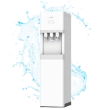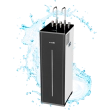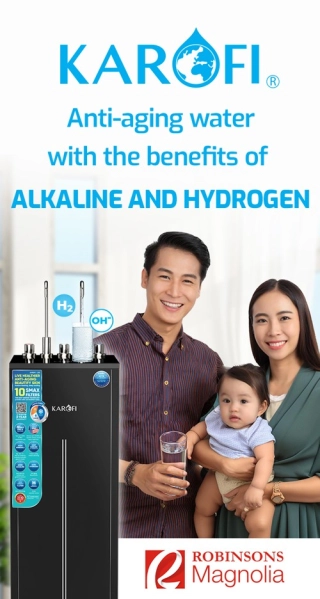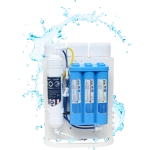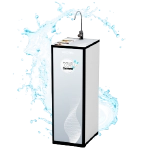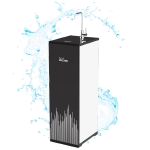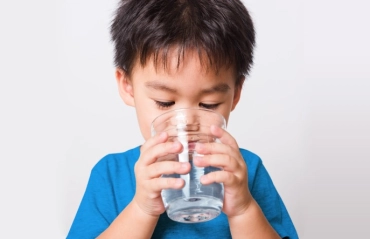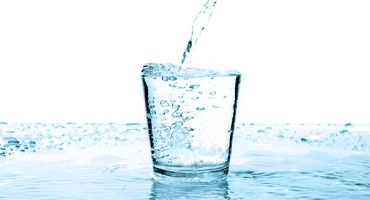The Ultimate Guide to Staying Hydrated During the Summer
Summer brings late-night barbecues, pool parties, and beach trips. While enjoying the benefits of soaking up the sun, it is important to ensure that you maintain proper hydration levels in your body. Maintaining adequate hydration during the summer is essential to prevent illnesses and other health issues. This article will delve into the importance of staying hydrated, the issues dehydration can cause, and practical tips for keeping hydrated during the hot months.
Issues of Dehydration in the Summer
Why Dehydration Happens More in Summer
During summer, it is easy for people to become dehydrated. Excessive sweating causes the body to lose more water than it absorbs, leading to dehydration. This is especially true in countries with harsh climates like Saudi Arabia, where water loss during summer is common.
Severe Complications of Dehydration
Dehydration can lead to severe complications such as:
- Seizures
- Brain Swelling
- Kidney Failure
- Shock
- Unconsciousness
- Death
Alarming Signs of Dehydration
Acid Reflux and Bloating
According to medical experts, dehydration, along with calcium and magnesium deficiencies, can cause ulcers, gastritis, and acid reflux due to insufficient water in the stomach for acid production. Drinking water can help alleviate severe symptoms of acid reflux by temporarily raising the pH level in the stomach.
Headaches
Headaches can sometimes be a result of your body being dehydrated. They often occur when you change your body position, such as going up and down stairs, bending over, or simply standing up after sitting.
Dry Skin
Dry skin is also a warning sign of dehydration. Increasing your daily water intake and using moisturizing lotion can help make your skin softer, smoother, and more supple.
Frequent Feelings of Hunger
Sometimes you may feel hungry even shortly after eating. This could be a result of the brain mistakenly sending signals of hunger instead of indicating thirst.
Ringing in the Ears and Blurred Vision
Adequate hydration ensures smooth functioning of the circulatory system, delivering blood to all organs, including nerve cells responsible for auditory control. A lack of water can cause symptoms like blurred vision and ringing in the ears.
Symptoms of Heat Exhaustion
Heat exhaustion is the body's way of signaling the need for more water intake. Warning signs include:
- Dizziness
- Fainting
- Rapid and Weak Pulse
- Headache
- Excessive Sweating
- Muscle Weakness
- Nausea and Vomiting
- Feeling Tired
If you experience any of these symptoms after sun exposure, sit in the shade and start drinking water.
Tips for Maintaining Hydration in the Summer
Drink Plenty of Water
The importance of staying hydrated cannot be underestimated, especially during the summer. Men need about 3.7 liters of water per day, while women need about 2.7 liters of water per day. This is equivalent to 15.5 and 11.5 cups, respectively.
Cut Back on Coffee and Carbonated Drinks
Unfortunately, drinking more water does not mean drinking more coffee or carbonated drinks. Some studies have shown that caffeine does not dehydrate you, but it can cause symptoms such as headaches and insomnia, exacerbating the heat.
Eat Water-Rich Foods
Did you know that you can also get some fluid from what you eat? About 20% of your daily water intake comes from food. Here are some fruits and vegetables that you can incorporate into your diet to enhance hydration:
Cucumber
Cucumbers contain 97% water and can be sliced or used in various dishes. They help cool the body and improve skin texture.
Radishes
Radishes contain 95% water and numerous nutrients. They can be sliced, sprinkled with salt and chili, or added to salads with lemon juice, olive oil, and salt.
Tomatoes
Tomatoes are composed of 94% water and contain cancer-fighting components along with vitamin C, flavonoids, folate, and potassium.
Watermelon
Watermelon contains 92% water and is rich in salt, calcium, magnesium, vitamin C, and vitamin A, making it an excellent hydrating source, especially during the summer.
Strawberries
Strawberries are packed with antioxidants, vitamins, and minerals that boost the immune system. With 92% water content, they are highly beneficial for health, especially in the summer.
Pineapple
Pineapple is rich in minerals, vitamins, antioxidants, and water. It has a high water content of 87%, making it a popular summer fruit.
Ensure You Have Clean Water at Home
With increasing water pollution due to climate change and industrial expansion, ensuring clean water at home is crucial. Consider purchasing a home RO water purifier to filter out contaminants. Karofi is a leading water filtration brand that offers advanced technology in their water filter products.
Conclusion
Staying hydrated during the summer is vital to maintain health and prevent serious complications. By recognizing the signs of dehydration and taking proactive steps, such as drinking plenty of water, cutting back on dehydrating beverages, and incorporating water-rich foods into your diet, you can enjoy all that summer has to offer without the risks of dehydration.
FAQs
-
How much water should I drink daily during the summer?
- Men should aim for about 3.7 liters and women for about 2.7 liters of water daily.
-
Can I count coffee and soda towards my daily water intake?
- It's better to rely on water for hydration, as coffee and soda can have dehydrating effects due to their caffeine and sugar content.
-
What are some signs that I am dehydrated?
- Common signs include headaches, dry skin, frequent hunger, ringing in the ears, and symptoms of heat exhaustion.
-
Are there foods that can help with hydration?
- Yes, fruits and vegetables like cucumbers, radishes, tomatoes, watermelon, strawberries, and pineapple are high in water content and can aid in hydration.
-
How can I ensure I have clean drinking water at home?
- Investing in a home RO water purifier can help filter out contaminants and ensure clean drinking water.



